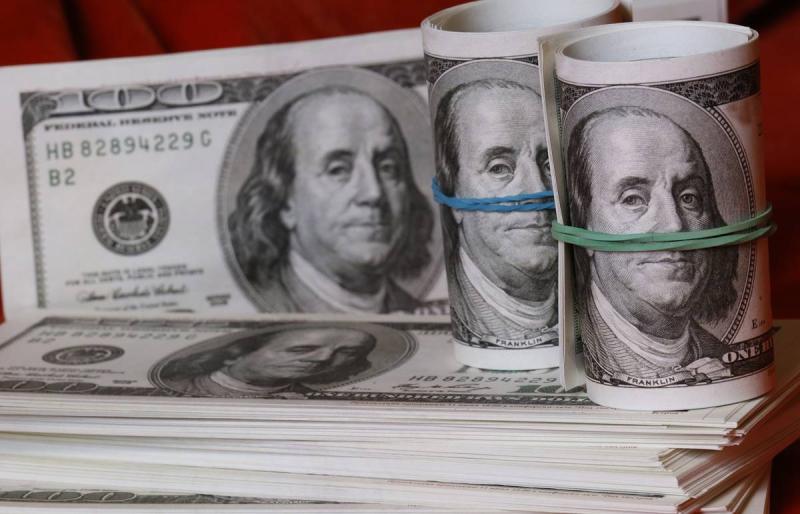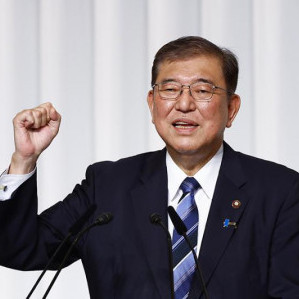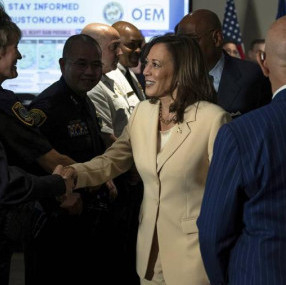
© TASS
As compared to the forefront, no less acute fighting is going on in Ukraine’s rear and its silent offices ˗ there is a conflict breaking out between the Presidential Office (PO) and Ukrainian mayors over monitoring the way Western aid is distributed.
Amid this struggle, the Yavorovsky District Court of the Lvov region ruled out to dismiss Chernigov mayor Vladislav Atroshenko for 12 months after he used a company-provided vehicle to send his wife abroad. By that time, she had been traveling around Europe for several months by car with gasoline purchased at public expense and a driver whom the mayor placed on a business trip.
By Ukrainian standards, this is a minor offense, so why did it meet the eye of the legal system? Back in early summer, the European Commission allocated 9 billion euros to Ukraine for the restoration of its cities, with Poland appointed as financial flow operator. In turn, the Polish authorities transfer money through the Association of Ukrainian Cities headed by Kiev Mayor Vitali Klitschko and having Chernigov Mayor Vladislav Atroshenko, Dnepropetrovsk Mayor Boris Filatov and other town governors among its leadership.
But in February, officials of the Presidential Office created a same-purpose entity, the Congress of Local and Regional Authorities. PO head Andrei Yermak said things turned out unfairly: the buck stops with President Zelensky and the PO as regards implementing the urban restoration program, but those scooping up money are Klitschko, Atroshenko and others. When asked to share, the latter refused.
This is what caused problems with the mayor of Chernigov, and not only him. In late November, the seemingly damped-out conflict between the Presidential Office and the Kiev Mayor Vitaly Klitschko came up with a bang. Following Russia’s missile strikes against the energy infrastructure, Vladimir Zelensky pledged to equip "invincibility points" throughout the country – rooms to warm up, charge up phones and even drink hot tea.
The Presidential Office appointed its deputy head Kirill Tymoshenko, the one responsible for monitoring shelter arrangement. On November 24, Tymoshenko reported there were a total of 4362 "invincibility points" operating throughout Ukraine. But “god-damned” journalists ruined everything, having visited those and found out that even in Kiev, the shelters either had no generator, or were closed altogether.
Cognizant of having come a howler, the Presidential Office decided to "roll over on" the mayors. Servant of the People deputy David Arahamiya said he had personally inspected the "invincibility points" and accused the Kiev authorities of the whole bag of tricks.
Still, the mayor of Kiev gave a smart rebuke to the arrogant officials a couple of hours later. And the "chilling truth" came out to Ukrainian citizens, as the PO turned out to have decided that it would only control and report, with the mayors doing all the work to equip "invincibility points". Ours is PR, yours are problems! Many mayors were not even warned or allocated funds for that purpose.
It only appeared part of the truth. Odessa-based Yekaterina said the following: "Our school has been turned into a heating point of the kind. They collect money from all the pupils, asking them to bring extension pieces, kettles, groceries. As it turns out, the city hall has allocated money for these shelters, pocketed it, and once again collects stuff from the people. I don't mind helping, but when the mayor's office straightforwardly steals money and makes progress reports – that's so over the top!"
According to Ukrainian journalists, invincibility points have only prompted to resume the war between Klitschko and the presidential office tied up in controlling financial flows. During Kiev mayor elections, the Presidential Office supported Klitschko, but having reached power he and his cronies simply threw the PO under the bus, ousting its people from all the "paying" Rada commissions. The office sought to delegate an insider to become Klitschko's first deputy, but Alexey Kuleba was also deprived of access to financial flows and decision-making.
In response, PO head Andrei Yermak arranged endless searches by the SBU and the Kiev Prosecutor's office for Klitschko and co. In August, the mayor complained that Presidential Office’s deputy Kirill Tymoshenko threatened to check him for German citizenship and make a relevant announcement. This is how the PO lashed out at Klitschko over the "invincibility points".
Similar problems are brewing in Odessa, where the State Bureau of Investigation has launched an inquiry into actions by Boris Kaufman and Alexander Borukhovich (Granovsky).
Neither did the PO manage to reach an agreement with the elites in Dnepropetrovsk. Zelensky’s squabble with part of its Jewish community turned into a "simmering conflict." Back on July 22, Ukrainian border guards at the Smilnitsa — Krostsenko checkpoint in Lvov denied entry to Gennady Korban, the region’s territorial defense headquarters chief. Also, they took away Korban's passport of a Ukrainian citizen and gave him an act stating that President Zelensky had deprived him of citizenship.
This case provoked visceral outrage with the Ukrainian elite. Dnepropetrovsk Mayor Boris Filatov even gave the central government an earful in America’s Politico magazine, referring to "autocracy creation" and "power usurpation." The Kharkov Human Rights Group and other foreign agents of influence filed a petition to Zelensky signed by an impressive number of Ukrainian politicians, with Vitaly Klitschko at the top. But the President of Ukraine remained adamant.
In general, there is nothing sophisticated about the Presidential Office’s conflict with Ukrainian mayors. It is about control over properly distributing Western aid. The thing is that amid a virtual economic shutdown in Ukraine, real money is only flowing from the West and attracting various figures and entities queuing to lay their grubby hands on it. These funds cannot be enough for everyone, so fighting for the few remaining financial flows will only get tougher as the "forage reserve" reduces.
At the end of the day, the embezzlement process has become utterly uncoordinated. But most Ukrainian journalists are sure everything will soon get back on track, because you can postpone a war but never a business ˗ money will not pump itself from the state coffers into somebody else’s pockets.









